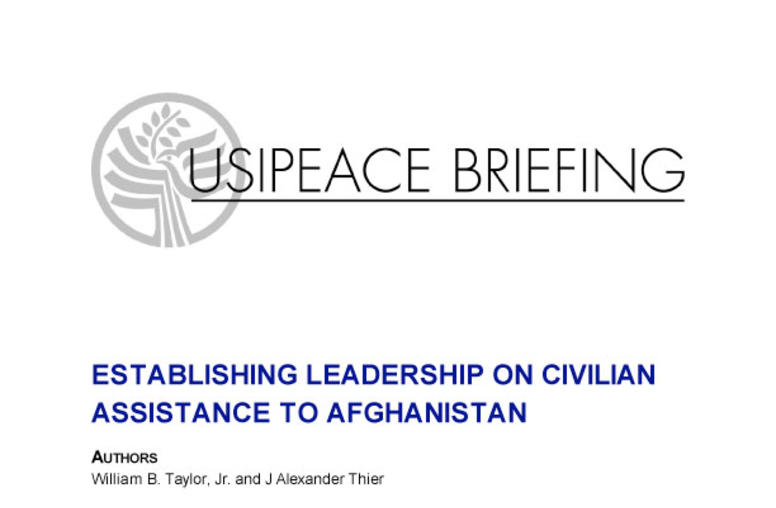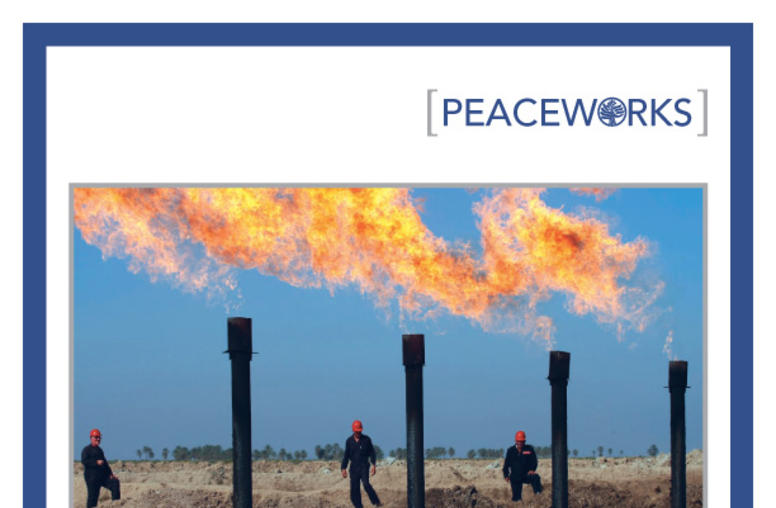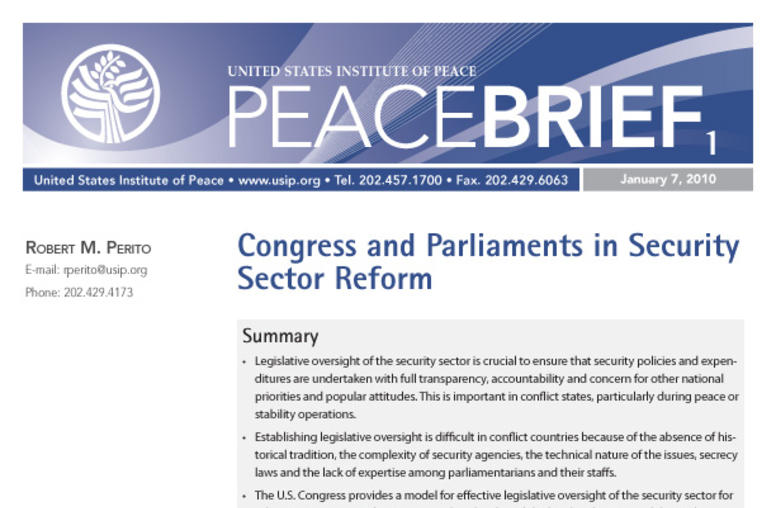Publications
Articles, publications, books, tools and multimedia features from the U.S. Institute of Peace provide the latest news, analysis, research findings, practitioner guides and reports, all related to the conflict zones and issues that are at the center of the Institute’s work to prevent and reduce violent conflict.

Establishing Leadership on Civilian Assistance to Afghanistan
USIP's Alex Thier and Bill Taylor argue why leadership of civilian assistance is necessary for success in Afghanistan, and lay out the best options to move forward.
The Internet, Transnational Networking and Regional Security in South Asia
Analysts have raised the possibility of increased turbulence in the world system as the flow of information becomes democratized, as information becomes broadly available outside previously narrowly defined areas of expertise, and hence, as hierarchies tumble. Others have focused on the impact on military security of the increasingly sophisticated means available to both rival states, as well as groups that challenge states, for changing and disrupting the flows of information and the informa...
The Enterprise of Diplomacy in the Information Age
Dealing with information technology and the reinvention of businesses and government are central issues throughout the public and private sector today. Changes resulting from information technology range from upgrading telecommunications and computer systems to rethinking completely the nature of enterprises and entire industries.
Conventional Wisdom about Information Technology
When I started to examine the impact of information technology on international relations a few years ago, I was initially attracted to the topic because there was not a lot of conventional wisdom on it. Compared to NATO enlargement, peacekeeping or ethnic conflict, this was a very new topic.
Virtual Tools for Real Diplomacy
I'm very excited to be talking to you because the era of computing that we're starting to get into is about to explode. The next ten years are going to require your expertise, the expertise of diplomacy, of understanding human beings, of understanding human affairs.
The Topology of Sovereignty
Traditional diplomacy is about territory. It works on the assumption that human communities are organized in sovereign nation-states with clearly defined borders. Such diplomacy is much more comfortable with geography than with anything else.
Arab Media: Tools of the Governments; Tools for the People?
In the aftermath of 9/11, a shocked U.S. government and public asked, "Why do they hate us?" bewildered that the so-called Arab street views them—us—with extreme antipathy. Since that day in September, an urgent desire to quench this seething regional hostility has seized the government, hoping to mitigate or at least deflect any future terrorist attacks.
Creating a Common Communications Culture: Interoperability in Crisis Management
No technologies have been more powerful in reshaping the post-Cold War international system than those of the information revolution. Over the past two decades, nation-states and subnational groups, international businesses, and multinational organizations have struggled to incorporate the dramatic possibilities for their work of satellite communications, the Internet, inexpensive telephone and cell phone services, fax machines, and global computer networks.

Iraq's Oil Politics
A new USIP report appraises the explosive politics of Iraq’s oil wealth and opportunities to address the conundrum.

Congress and Parliaments in Security Sector Reform
A new USIP report argues the importance of legislative oversight for effective security services, and why the U.S. Congress is a model for foreign legislatures.